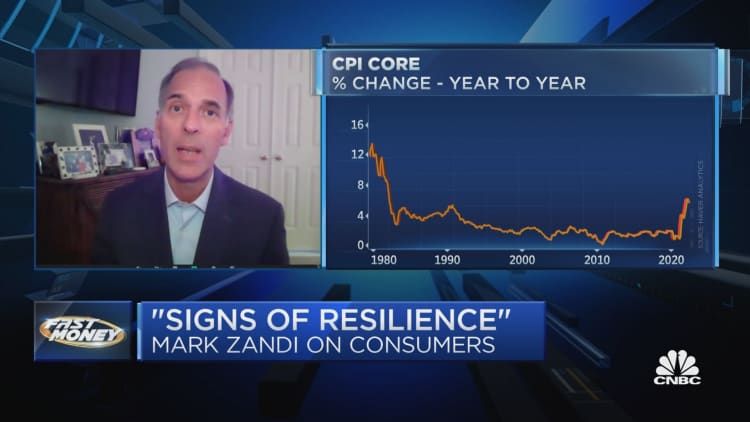
After years of cheap money, it’s suddenly a lot more expensive to borrow.
The Federal Reserve has raised its benchmark short-term rate 3 percentage points since March in an effort to curb unrelenting inflation, including another big hike earlier this week.
“Interest rates are going up at the fastest pace that any of us have seen in our adult lives,” said Greg McBride, chief financial analyst at Bankrate.com. “Credit card rates are the highest since 1995, mortgage rates are the highest since 2008 and auto loan rates are the highest since 2012.”
But it’s the combination of higher rates and inflation that have hit consumers particularly hard, he added. The consumer price index rose 8.3% in August compared to the prior year.
More from Personal Finance:
What the Fed’s interest rate hike means for you
How persistent high inflation may affect your tax bracket
These steps can help you tackle stressful credit card debt
Higher prices are causing more people to lean on credit just when “interest rates are rising at the fastest pace in decades — that’s just a dangerous mix,” McBride said.
“With more rate hikes still to come, it will be a further strain on the budgets of households with variable rate debt, such as home equity lines of credit and credit cards,” he said.
Here’s how Fed hikes this year have impacted the rates consumers pay on the most common types of debt, according to recent figures from Bankrate.
Credit cards: Up 182 basis points
- September average: 18.16%
- March average: 16.34%
With the rate hikes so far, those credit card users will wind up paying around $20.9 billion more in 2022 than they would have otherwise, according to a separate analysis by WalletHub.

HELOCs: Up 279 basis points
- September average: 6.75%
- March average: 3.96%
On a $50,000 home equity line, the interest, alone, costs another $125 a month relative to the beginning of the year. “Just like credit cards, that takes a bite,” McBride said.
Mortgages: Up 221 basis points
- September average: 6.35%
- March average: 4.14%
Witthaya Prasongsin | Moment | Getty Images
This month, the average interest rate on the 30-year fixed-rate mortgage surpassed 6% for the first time since the Great Recession and is now more than double what it was one year ago.
As a result, homebuyers are going to pay roughly $30,600 more in interest if they take out a mortgage, assuming a 30-year fixed-rate on an average home loan of $409,100, according to WalletHub’s analysis.
Auto loans: Up 104 basis points
- September average: 5.02%
- March average: 3.98%
Paying an annual percentage rate of 6% instead of 3% could cost consumers nearly $4,000 more in interest over the course of a $40,000, 72-month car loan, according to data from Edmunds.
However, in this case, “rising rates are not the reason the average car payment is over $800 a month,” McBride said. “It’s the sticker price that is a lot higher.”
Personal loans: Up 43 basis points
- September average: 10.73%
- March average: 10.30%
Jayk7 | Moment | Getty Images
Even personal loan rates are higher as the number of people with this type of debt hit a new high in the second quarter, according to TransUnion’s latest credit industry insights report.
“Those with good credit are still able to get rates in the single digits,” McBride said. But anyone with weaker credit will now see “notably higher rates.”
How to protect yourself against higher prices, rates
“If consumers haven’t already evaluated their budget after feeling the impact of inflation, they should be starting it now,” said Michele Raneri, vice president of U.S. research and consulting at TransUnion.
Amid fears of a recession and more rate hikes to come, consumers should “cut back on discretionary spending” where they can, advised Tomas Philipson, economist at University of Chicago and former White House Council of Economic Advisors Chair.
“You are going to need your money for necessities, meaning food, gas and shelter.”
Cutting costs will also help avoid additional credit card debt and pave the way to increased savings, the experts said.
“Have an emergency fund at the ready,” Raneri cautioned. “Three to six months of expenses ideally, but even a few hundred extra dollars can prove valuable if unforeseen circumstances arise.”
“You need to be careful here,” Philipson added. Without sufficient cash reserves, “you are vulnerable.”
 EU News Digest Latest News & Updates
EU News Digest Latest News & Updates



